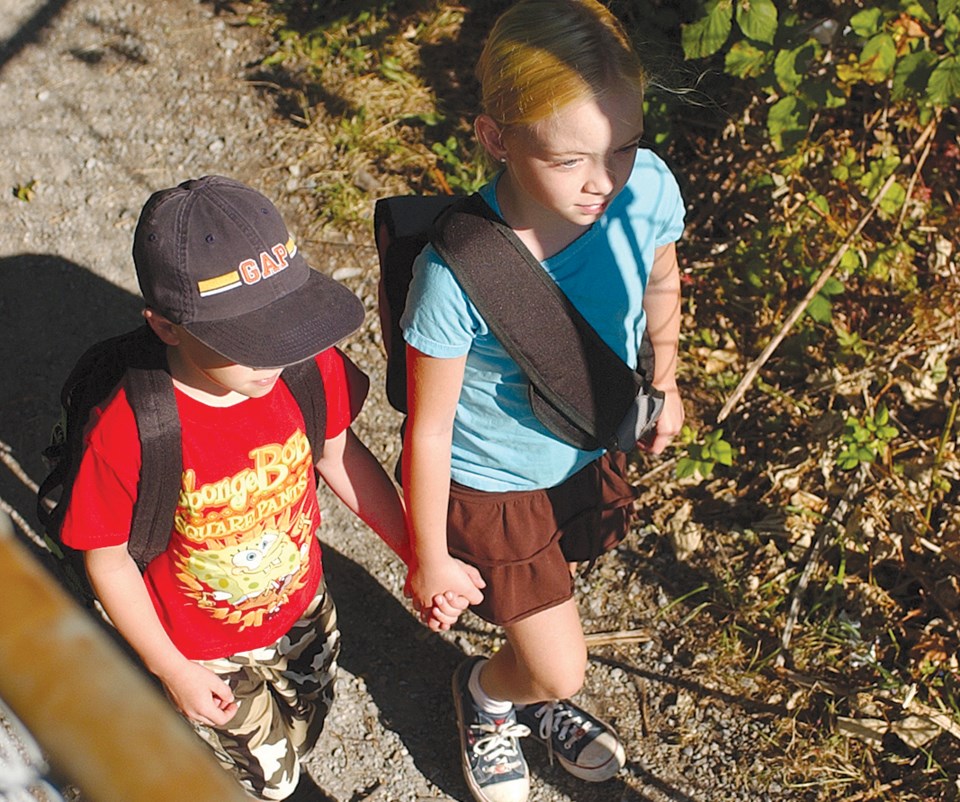The end of summer heralds the start of a new school year.
For some it’s an exciting time and for others it’s a time of anxiety. For Irwin Park elementary teacher Duncan Knight, the lead-up to the start of a new school year is a mixture of both.
“It’s such an exciting time of the year, September, you’re getting going again, but it comes with the anxiety of, OK, now I’ve got a whole bunch more things to juggle again,” he notes.
Knight usually teaches summer school, as he did this summer, which leaves him with just a couple of weeks of downtime between when school ends and when it starts up again. “I like (teaching) summer school for that reason,” he says. “Ten weeks is a long time to be out of the flow.”
Knight, who has been teaching for 15 years and currently teaches Grade 5, says it takes about a month for him to really get to know his new students each new year. After the summer break, he uses diagnostics to assess where students are at with core academics, and also incorporates co-operative and introductory games and activities to get to know the new class better.
“The big thing for me is rapport with the students,” he explains when asked to describe his teaching style. “That’s the starting point and the end point really because if they don’t have that with you they’re not really going to make the kind of development that you want them to make.”
Knight says he especially likes teaching the Grade 5 age group because students are old enough to start discussing and exploring more complex ideas. “I think 4/5 are refreshing grades, really they’re lovely,” he says.
While two months of summer vacation can be a long break from school for teachers, it’s also a long break for students.
“The biggest weakness I see coming back as a teacher is the writing, followed by math, they get rusty, but they tend to be able to pick that up a bit quicker,” says Knight. “But writing takes the longest to develop again because they really don’t do that over the summer.”
He recommends parents encourage their kids to write for fun over the summer holidays so they can continue practising.
“Even loose journal activities where writing is done for fun, not worrying about grammar and composition, just doing it for the practice of writing or just doing it for the fact that writing is fun and can be fun,” notes Knight.
He also suggests one-off activities such as writing a menu, or chronicling their best day of the summer. Knight says in recent years he has noticed parents either do too much school preparation over the summer or not enough.
“There’s got to be a balance,” he says.
Trying to cram intense study into the two weeks before school starts isn’t going to be too helpful, but incorporating fun, simple activities that use school skills throughout the summer can be. Getting kids ready for school can be as simple as getting them organized.
Knight says organization is a big key to school success throughout the year. As students return to school in September, “they feel like they’ve got potential, it’s a new start,” he notes. “They try hard. So if they’ve got the organizational skill set with that they can carry that attitude on as long as possible.”
Using some sort of agenda or planner is helpful, and Knight recommends starting in the summer to get kids into the habit of keeping track and knowing what they need to do. For example, get kids to write a bit down every day during the summer about what they need to do the next day, even if it’s just “go to the playground.”
Another skill that kids need to be taught is how to keep their binders organized.
“We assume that’s natural but it’s not for a lot of students,” says Knight. He suggests that students need to be shown how to keep their books organized and they need to keep practising, even something as simple as putting loose leaf paper in the binder so they don’t lose their work.
However, his biggest tip for kids to keep their school minds active during the summer is simple: Reading, reading, reading.



